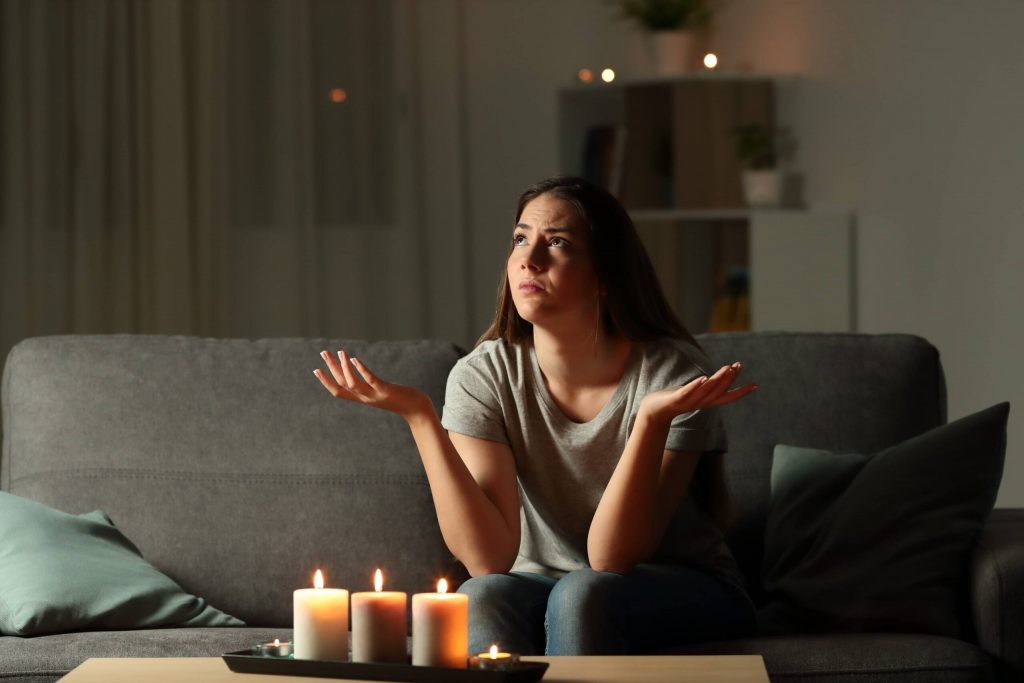
One of the biggest annoyances even on a good day is a power outage. When there’s snow and ice outside, it can feel even worse. Here are some ideas to get through a power outage.
Stock up in advance. Items to buy include:
- Flashlights and batteries
- Non-perishable food items that do not require cooking, for example: peanut butter, canned meats, and canned fruits.
- If you have pets, water and food for them
- Water
- Coolers to store food
- Manual can opener
- A way to charge your phone, such as an external battery or a solar charger
- Gasoline (The best tip is to not let your vehicle get below a half tank, especially in winter.)
- Hand, feet, and back warmers
- Blankets, especially wool and sleeping bags
- Battery operated radio
- Battery operated TV with antenna
- Generator, if you can afford one
- If weather that may cause an outage is in the forecast, put bags of water in the freezer to freeze and help keep the rest of the food cold when the power goes out.
- If you have a medical condition that requires something electronic for treatment, make a plan before an outage with your doctor on what to do.
What to do when in a power outage:
- Unplug all of your electronics, especially computers and TVs.
- Close the curtains and blinds when the sun doesn’t hit that side of the house to keep warmth in.
- Keep going in and out the door to a minimum.
- If you are concerned about your perishables, move them outside onto a porch. Put them somewhere safe from animals and perhaps in coolers.
- Keep water use to a minimum. Only flush when necessary, and keep baths to a minimum. While you are keeping water use from the faucet to a minimum, do drink plenty of water from your supplies.
- Keep phone use to a minimum. Turn the screen brightness down and turn off apps you don’t need. Also, keep in mind that sometimes texts will go through even if calling is difficult and vice versa.
- Layer up your clothes and blankets. Don’t feel weird about wearing a hat and/or gloves to bed.
- If you’re using a generator, make sure it is properly ventilated and that you follow the manufacturer’s directions when operating. Keep generators away from all windows, doors, and vents that could draw air indoors. Better yet, don’t get an indoor generator.
- Keep an eye out for frostbite or hypothermia. Symptoms of frostbite include pale extremities and losing feeling in that area. Symptoms of hypothermia include memory loss, slurred speech, uncontrollable shivering, and exhaustion. If you suspect these, get into the warmest area in your house and call 911.
Power outages are a pain, but they can also be a blessing. Have games and books stashed away to make the power outage a relaxing bonding time for the family. With some planning ahead and some safety precautions, power outages are not something to be worried about.
By Bethanie Ryan

